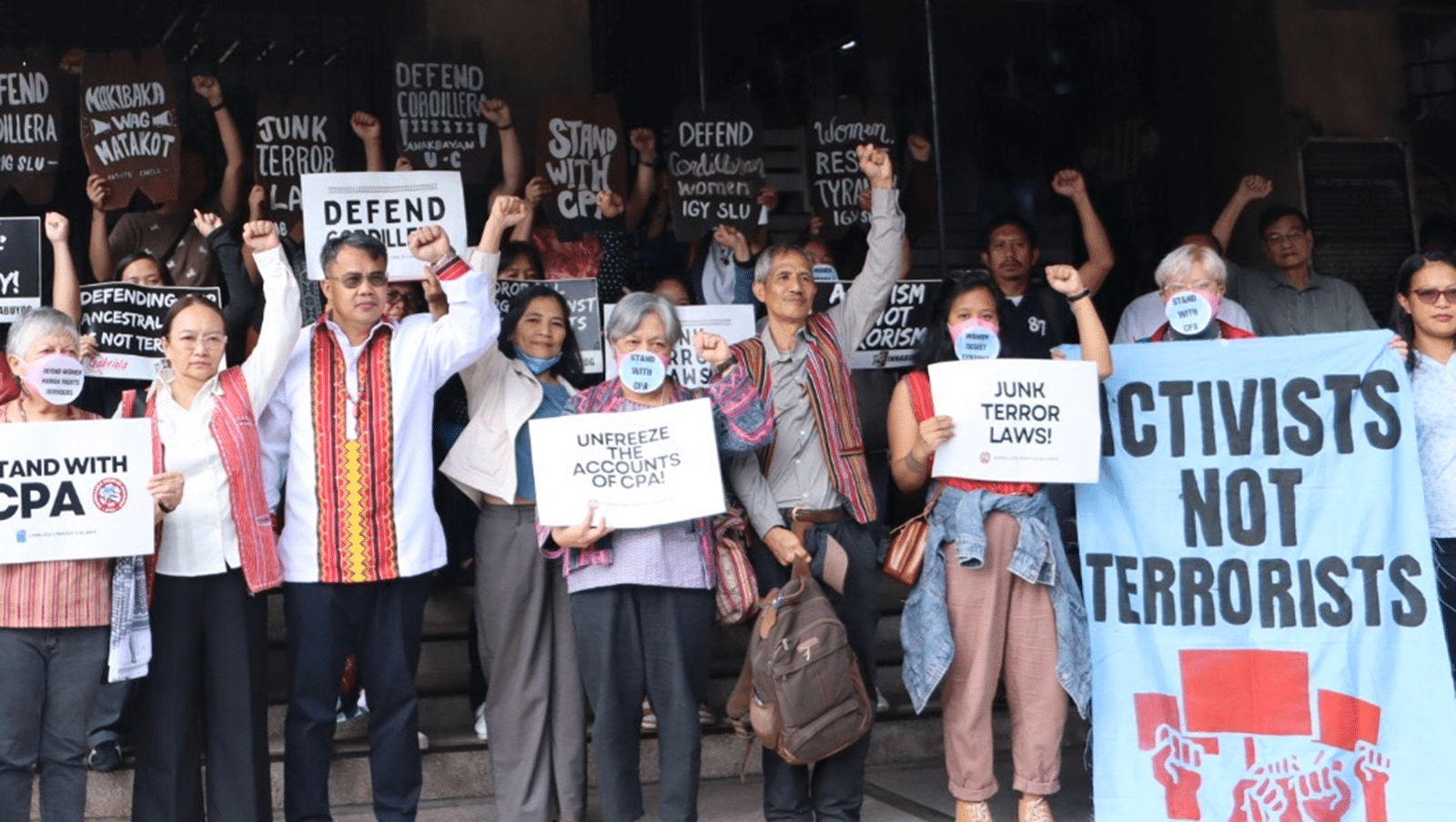
JUNK TERROR LAW Baguio-based activists belonging to the Cordillera Peoples Alliance hold a picket outside the Baguio Justice Hall to denounce the antiterrorism law, which four of its members are questioning before a local court after they were declared terrorists by the Anti-Terrorism Council last year “without due process.” — CORDILLERA PEOPLES ALLIANCE PHOTO
BAGUIO CITY—How can government intelligence witnesses testify if their identities must be concealed to protect state secrets?
That is what Judge Cecilia Corazon Dulay Archog of the Baguio Regional Trial Court Branch 7 wanted resolved during the third day of trial for a petition challenging the Anti-Terrorism Council’s (ATC) 2023 designation of four activists here as terrorists.
READ: Baguio activists all set to challenge ‘terrorist’ tag
Windel Bolinget, chair of the Cordillera Peoples Alliance (CPA), and CPA members Jennifer Awingan-Taggaoa, Sarah Abellon Alikes, and Steve Tauli have asked Archog to void their terror classifications, which they claimed were issued without due process, and to lift a freeze order on their assets.
Their lawyers, Jose Molintas and Ephraim Cortez, concluded their presentation of evidence on Monday after the Office of the Solicitor General (OSG) cross-examined CPA cofounder Joanna Cariño and farmer Michael Baani of Sagada, Mt. Province, who testified that CPA has social projects in his community that were disrupted after the Anti-Money Laundering Council froze the group’s accounts, even though it was not designated as a terrorist organization.
CPA has a separate petition questioning the government’s decision to suspend access to their bank assets, which is pending with the Supreme Court.
OSG earlier informed the court that the government would be presenting four key witnesses who are high-ranking police and military officials and a former communist rebel on Oct. 7.
Archog had allowed the OSG to transmit redacted affidavits and other documents regarding the identities of five “confidential witnesses” who would testify for the government during its presentation of evidence. Among them are intelligence officers, as well as “witnesses who are not with the government.”
More time
But its lawyers on Monday asked for time to expand the redaction to include “factual details” that might also identify their witnesses.
They also asked Archog if they could introduce the confidential witnesses in an ex parte proceeding, which could exclude the petitioners.
The OSG cited Executive Order No. 608, a 2007 directive that sets up a national security clearance mechanism for government employees who have access to sensitive state information.
“This is the first time we are dealing with confidential information [in a trial]. How can we hear them as witnesses?” Archog said, adding: “The burden of proof that the ATC had not acted with grave abuse in designating [Bolinget, Alikes, Tauli, and Taggaoa] as terrorists is on you—not the petitioners.”
Cortez, a member of the National Union of Peoples’ Lawyers, objected to any ex parte sessions.
He also raised issues about the OSG’s secret witnesses: “How can we cross-examine this type of witness and test their credibility? How would we be ensured that what they say in their affidavits is true or false?”
Cortez said some witnesses could be top military or police officials who are public figures and should not be classified as “confidential” during the trial.
Molintas also argued that the petitioners might already know the confidential witnesses, because they had been visited by government agents in the past. He said this would make the effort of concealing their identities unnecessary.
Archog said the OSG could instead consider allowing members of the ATC to testify and explain how and why they designated Bolinget and the rest as terrorists.

